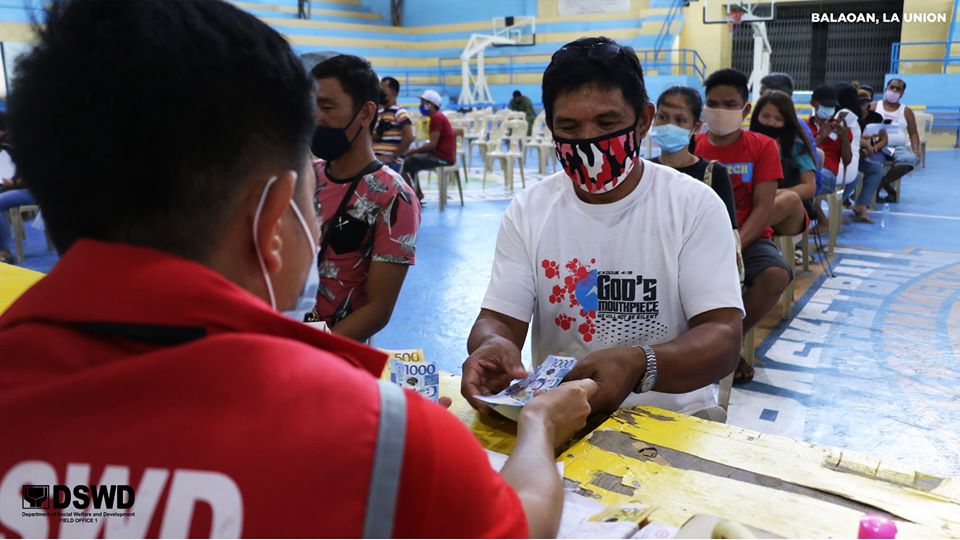
MANILA – The Inter-Agency Task Force for the Management of Emerging Infectious Diseases (IATF-EID) has allowed the full operation of financial service providers (FSPs) that have been tapped to hasten the distribution of cash subsidies under the government’s social amelioration program (SAP).
The IATF-EID approved Resolution 61 on Thursday, adopting the recommendation of the Department of Social Welfare and Development (DSWD) to let FSPs involved in the release of the SAP aid operate at “full operational capacity.”
“As such, the employees of said financial service providers shall be allowed full mobility in the performance of their functions,” the resolution read.
The IATF-EID acknowledged the need to introduce amendments to further streamline the government’s response to the coronavirus disease 2019 (Covid-19) pandemic.
The resolution states that allowing the DSWD’s partner-FSPs would “ensure the uninterrupted distribution of social amelioration to the most vulnerable.”
IATF-EID Resolution 61 also authorizes the “limited movement” of SAP beneficiaries to avail of and receive financial aid from the national government.
The DSWD, the lead agency implementing the SAP, inked on June 30 a memorandum of agreement with state-owned Land Bank of the Philippines and six FSPs – GCash, Rizal Commercial Banking Corp., Robinson’s Bank, PayMaya, Unionbank, and Starpay.
The agency partnered with the six FSPs because of their expertise in digitization, as well as enabling policies and regulatory environment for financial inclusion and digital payments.
The SAP allows the government to distribute temporary cash assistance worth PHP5,000 to PHP8,000 to poor households to help them cope with the Covid-19 crisis.
The DSWD has so far distributed PHP63.2 billion to more than 9.7 million low-income households who are qualified to receive the second tranche of the emergency subsidies under the SAP.
As of August 5, the cash relief has been given to more than 1.3 million families who are also beneficiaries of the Pantawid Pamilyang Pilipino Program (4Ps), more than 5.1 million non-4Ps beneficiaries, and more than 3.2 million waitlisted families.
On Wednesday, the DSWD said about 6.8 million SAP beneficiaries would get the emergency subsidies through digital disbursement.
The DSWD added that it is coordinating with local government units to ensure that SAP recipients who are physically fit would be allowed to go out during their payout dates and when they need to encash their subsidies.